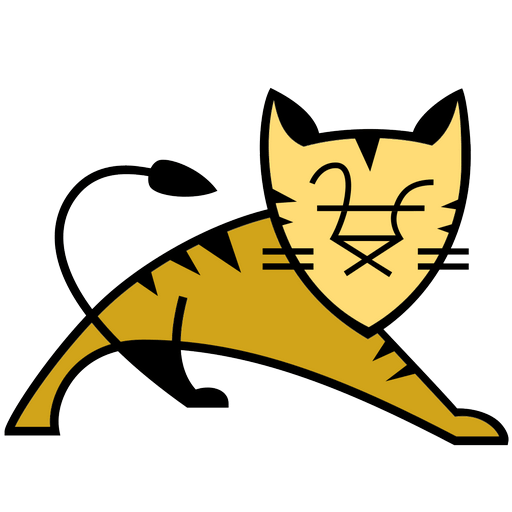Kamatera’s high-performance cloud infrastructure is the ideal platform for Tomcat hosting, providing instant scalability, global reach, and developer-friendly tools. Our SSD-powered cloud servers ensure your Tomcat applications load instantly, even under heavy traffic loads. Deploy Spring Boot, JSF, and custom Java web applications with zero configuration hassle, or build and scale microservices with Tomcat’s lightweight, modular approach.


Performance, scalability, and control
With full root access from Kamatera, you can customize your server environment to your exact requirements, including your choice of operating system, Java version, and Tomcat configuration. If it’s not right, you can easily scale your resources (CPU, RAM, storage) up or down in minutes to handle any traffic spikes. Pay only for the resources you use, with our flexible and transparent pricing model.
Position your Tomcat server strategically in any of our worldwide data centers. With global locations across 4 continents, including locations in Singapore, London, New York, Miami, Amsterdam, and Sydney, you can minimize ping times for your entire team. Get started now and receive $100 in free credits.
Price Calculator
Data Centers Around the Globe

Frequently Asked Questions
Here are the general system requirements for deploying Apache Tomcat:
Operating systems:
Linux: Widely supported, including Ubuntu, Debian, Red Hat, CentOS, Fedora, SUSE, and more.
Windows: Supported versions include Windows 10, 8.1, Server 2012, 2016, and 2019.
macOS: Supported versions include macOS 10.13 (High Sierra) and later.
Hardware:
CPU: Modern Intel or AMD processors with 64-bit architecture.
RAM: Minimum of 1 GB, but 2 GB or more recommended for optimal performance.
Disk Space: 100 MB for installation, plus additional space for applications and logs.
Network Interface: Standard Ethernet or wireless adapter.
Software:
Java Runtime Environment (JRE): Version 8 or later (8.5 or later recommended).
Package manager: Appropriate for your OS (apt, yum, brew, etc.) to install Tomcat from repositories.
For more detailed information, refer to the Apache Tomcat documentation.
Apache Tomcat is a widely used open-source application server that serves as a Java Servlet and JavaServer Pages (JSP) container. It is known for its simplicity, flexibility, and scalability. Here are some common use cases for Apache Tomcat:
· Web application hosting
· Java EE web profile applications
· Java Server Pages (JSP) development
· Servlet development
· Java API for WebSocket (JSR-356) support
· Spring framework applications
· RESTful web services
· Development and testing environments
· Small to medium-sized applications
· High availability (with load balancers)
Yes! With full root access, you can install any Java version (8, 11, 17, 21) or run multiple Java versions simultaneously for different applications.
Here are some popular alternatives to Apache Tomcat:
· Jetty
· WildFly (formerly JBoss)
· GlassFish
· IBM WebSphere Application Server
· Microsoft Internet Information Services (IIS)
· Resin
· Undertow
· Payara Server
· Spring Boot (Embedded Tomcat or Jetty)
· Thorntail (formerly WildFly Swarm)
We support MySQL, PostgreSQL, MongoDB, MariaDB, and other popular databases. You can install them on the same server or connect to external database services.
Here are some key distinctions between Apache Tomcat and other application servers:
Modularity and lightweight nature:
Tomcat is known for its lightweight and modular design. It is specifically designed to be a servlet container, providing the essential components needed for servlet and JSP execution. This lightweight nature makes it well-suited for simpler applications and scenarios where a minimalistic approach is preferred.
Embeddability:
Tomcat is easily embeddable in other applications. Developers can embed Tomcat within their Java applications, allowing them to run servlets and JSP without the need for a separate server installation.
Focus on web applications:
Tomcat has a strong focus on serving web applications, especially those developed using Java technologies like servlets and JSP. It is widely used as a standalone server for hosting web applications.
Configuration and extensibility:
Tomcat’s configuration is typically done through XML files, and it is known for its straightforward configuration. It is extensible through the addition of custom components and configurations.
Yes, you can easily scale your resources (CPU, RAM, storage) up or down in minutes to handle any traffic spikes.
Instant setup: Deploy your Tomcat server in minutes with our pre-configured templates.
Flexible configurations: Customize your server environment to your exact requirements, including your choice of operating system, Java version, and Tomcat configuration.
Reliable infrastructure: Our cutting-edge data centers and robust network ensure maximum uptime and performance.
Cost optimization: Take advantage of our scalable resources and pay-as-you-go pricing to minimize your hosting costs.














